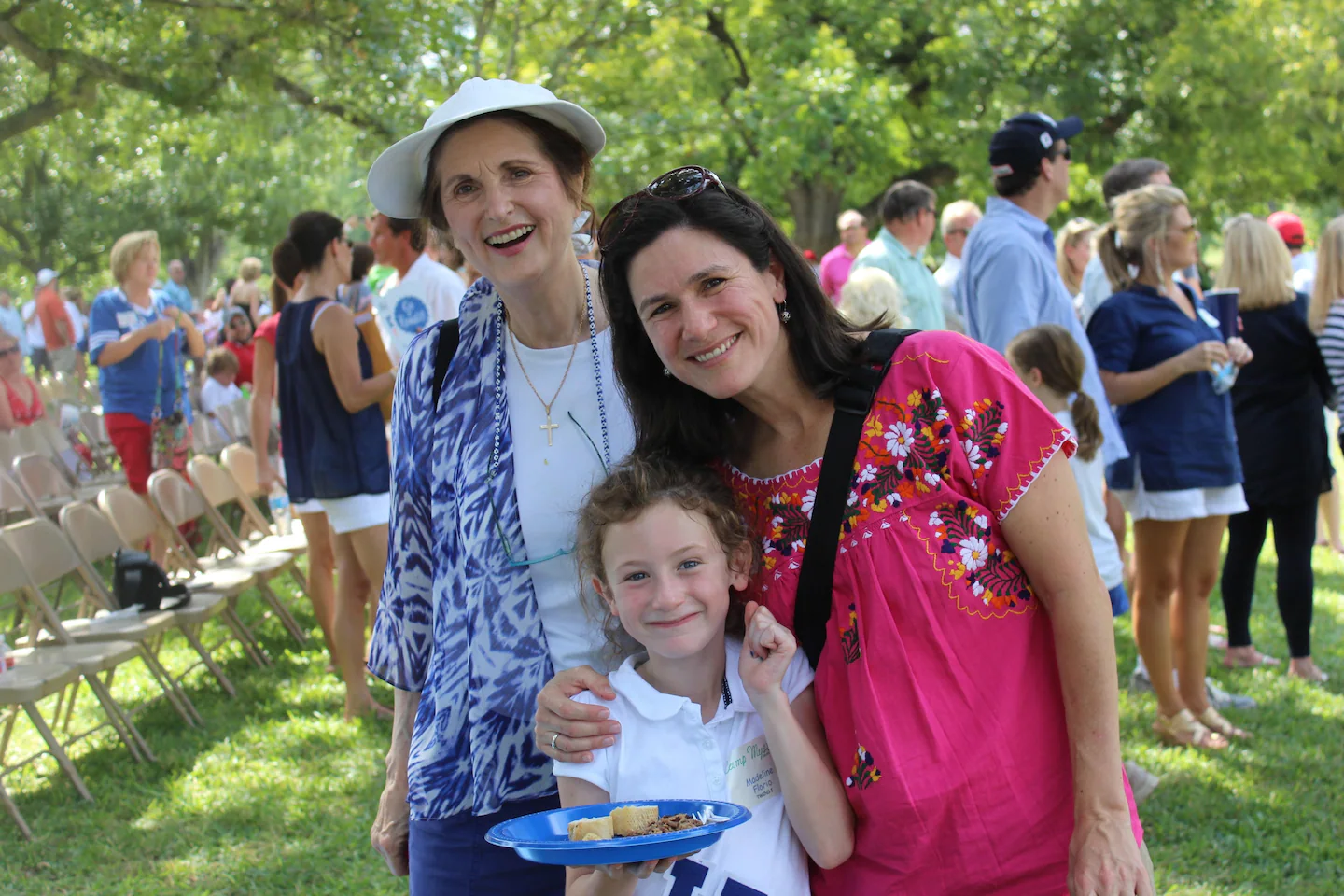With the convention looming, it had been the idea of LBJ’s longtime secretary, Mary Rather, that Lynda — a studious 12-year-old and the elder and shyer of the two Johnson girls — be allowed to step away from the harshness of the political spotlight and steep herself in the quiet beauty of the Texas Hill Country.
“They went to Chicago, and they sent me to Mystic,” Lynda, now 81, recalled during an interview on Monday. “I think I had never spent the night before with someone who wasn’t family or a close friend.”
And so began a Johnson family tradition. Lynda’s younger sister, Luci, would follow her to Mystic. And in the years to come, so would their daughters and granddaughters, some of whom became counselors there.
Lady Bird Johnson would become a regular presence as well, in the summers that stretched near to the end of her life. The former first lady would make sure she was in the audience of the stage productions in which all three generations of her Mystic girls appeared, and she celebrated their achievements at the camp’s closing ceremonies.
“It was the camp of our dreams,” Lynda told me. “It’s a hole in our hearts now. You just can’t believe that Camp Mystic and all of those girls are gone.”
Over the past days, the death toll from the Guadalupe River floodwaters has mounted and has grown to include more than two dozen Mystic campers and counselors. The images of the lost and still missing, those beautiful young faces, are inescapable. So, Lynda and her family and the lifelong friends that she made in her summers there have dealt with their grief by staying in close touch.
The camp, which opened in 1926, had a legendary reputation among Texans of privilege. Parents were known to put their daughters on the waiting list at birth. (Though the official admission policy is that campers must have completed second grade, Lynda confided that Luci managed to finagle the admission of one of her daughters at the age of 6.) Girls in their cabins could look up and see the names of their mothers and aunts and grandmothers carved into the rafters.
Especially for earlier generations, it also functioned as something of a finishing school and social launching pad, albeit one where the finer points of handling a .22 caliber rifle were taught alongside etiquette and art. The bonds formed there could help ensure that a girl would get into the right sorority at the University of Texas, marry well and find entry in elite circles.
As we spoke, Lynda’s memories came pouring out. “I tried golfing. I was a failure. But I loved swimming,” she recalled. In his letters, her father encouraged Lynda to work at becoming better at horseback riding — and indeed, she won a silver charm for her improvement. LBJ also wrote that “he wouldn’t even mind if I lost a few pounds,” Lynda said with a laugh.
Self-reliance was also demanded. Girls were expected to keep their rooms clean and do their own laundry, though Lynda acknowledged she wasn’t always as diligent as she should have been at the latter. On Sundays, they wore white and had to produce at least one letter they had written home to be allowed to partake in the delicious fried chicken lunches. The girls called them “chicken letters.”
Camp Mystic also helped Lynda find her identity and a community as a Texan.
Her father was already in Congress by the time she was born, which meant she spent most of her growing-up years in Washington. She would live in the White House and later be first lady of Virginia. But she still makes a point of getting together with her camp friends when she visits Austin. “You just enjoyed each other’s company,” she said. “You weren’t worried about what was going on in the big world out there.”
Now, however, that world has come rushing in with a torrent of deadly water. Lynda’s memories —



